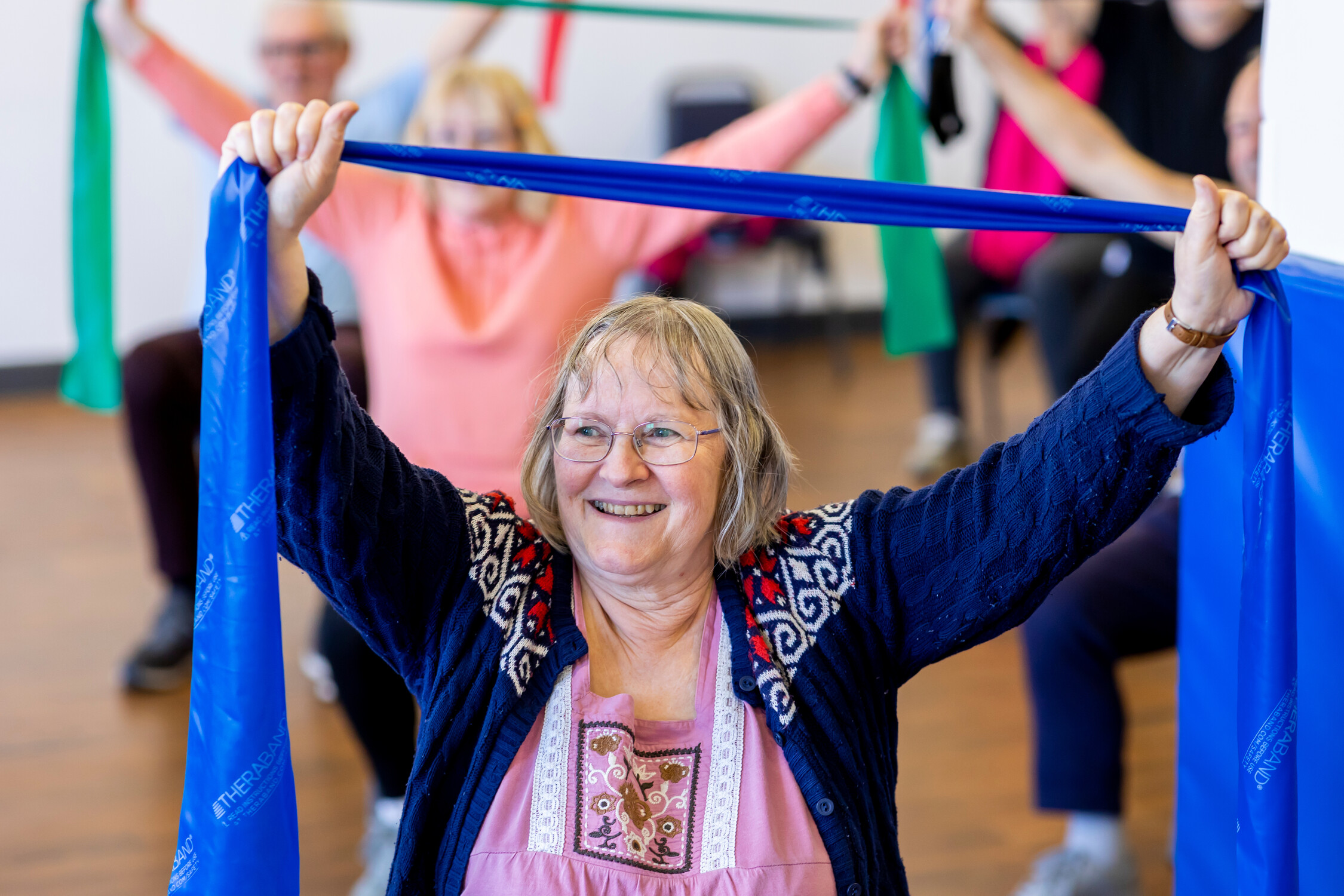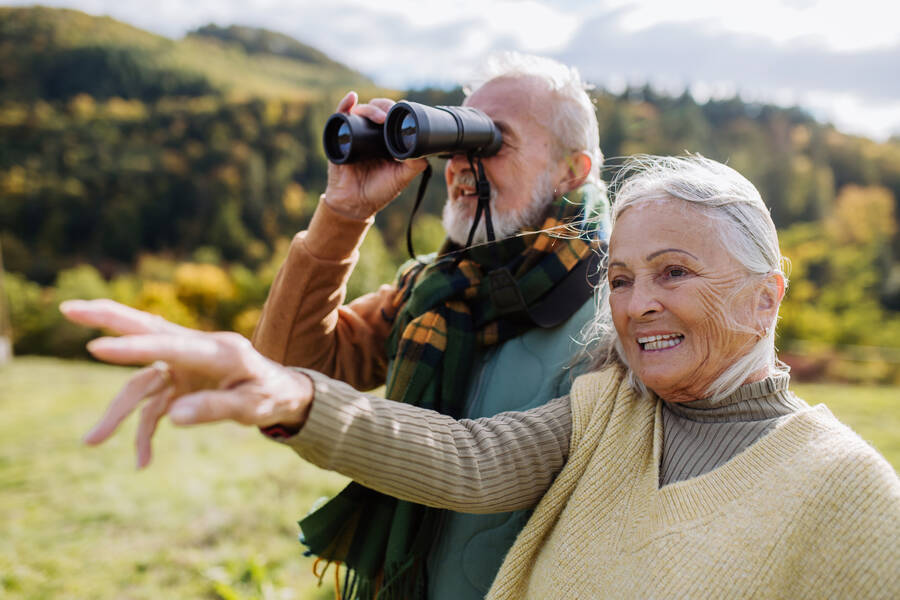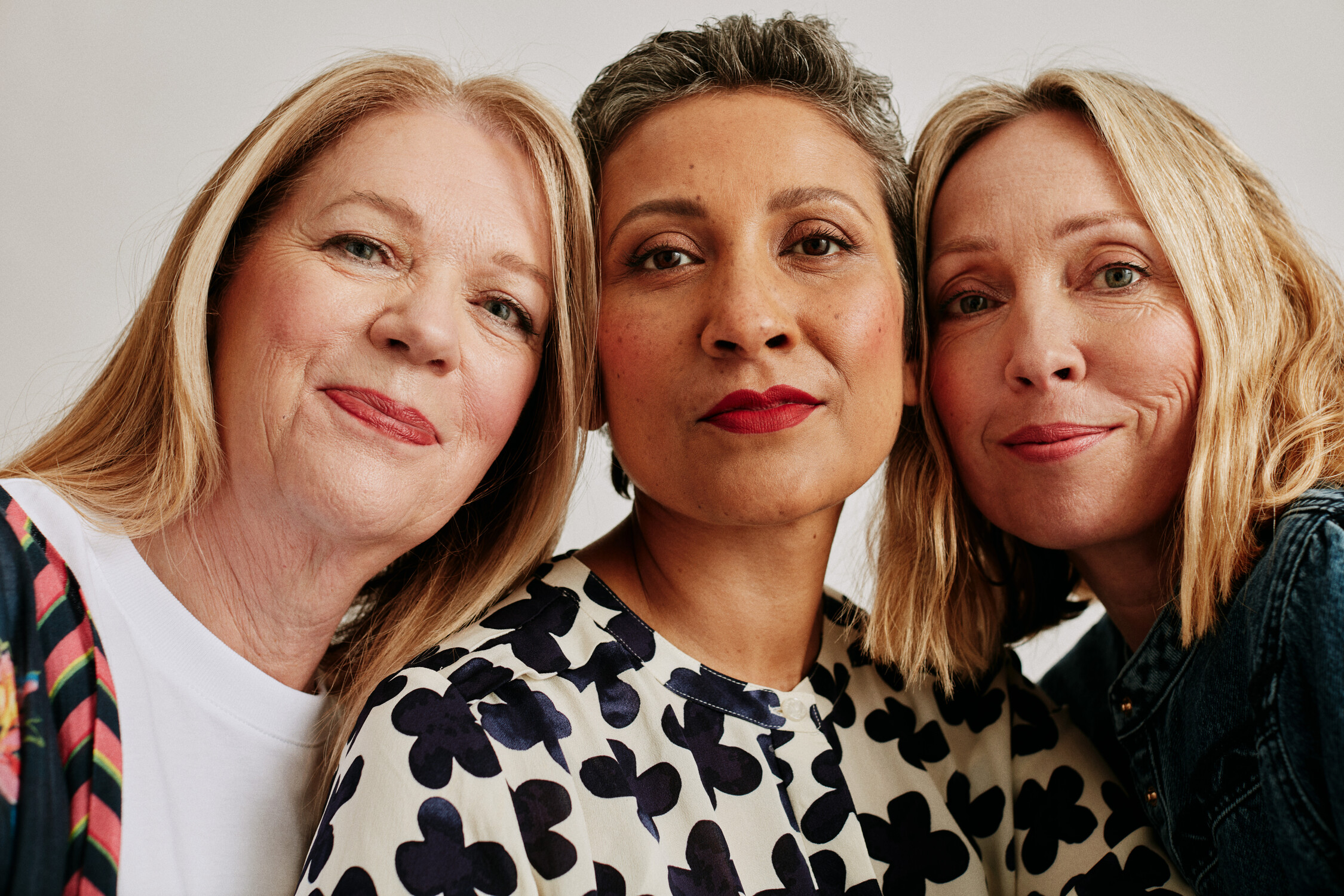Remarkable research by Dr Becca Levy, published in Breaking The Age Code reveals the answers.
And it’s not medical.
So much is around how we think, and supports what I found in my doctoral research.
It’s about our thoughts and beliefs, particularly about ageism
If we have positive perceptions of ageing we are more likely to perform better in physical and cognitive tests than those with more negative views. And more likely to live longer.
So we need to change the way we think
We absorb these ageist messages from as young as three, seeing old people in negative terms, and these messages can stay with us through life. They can have a psychological impact and affect our self-esteem, but they can also have a biological impact, increasing levels of stress that leads to an earlier death.
The Media tells us
Films, TV, adverts and articles can show older people in a negative light. Too slow to learn, too decrepit to try something new and the subtle drip feed can mean we internalise this. We feel we have to dye our hair (men as well as women). We are portrayed as dependent, helpless, unproductive, and demanding with close ups of wrinkled hands and generally looking sad and in ill health. Apart from the ones of overly happy couples, that are clearly models, who don’t look real. This is one reason why the Centre for Ageing Better have created a media library of positive older people.
Promoting negative age beliefs is a way of selling products (creams, pills, potions, hormonal supplements) based on a fear of ageing that the media have helped to create. They falsely claim that these products will halt or reverse ageing. The message is so loud that young people in their 20s are now having Botox.
The feared future self
Ageism promotes stereotypes that lead to younger people seeing older people as different to them, not as human beings. Younger people fear ageing, and fear their future self. Not only do they have negative views of older people, when they reach an older age, they have already internalised these older views themselves. So for example, if they think people aged 40+ can’t lift weights at the gym, they will struggle to do the same when they get older.
We can also experience the feared future self when we reach 40 or 50. Around this age we may begin to feel old and perhaps don’t get as much attention as in the past. Then we see an older person and project our negative thoughts of ageing on them. They are ugly, frail and we don’t want to be like them.
But we are far more than our external self. We shouldn’t ‘judge a book by its cover’ and if we are focused on the beauty of youth how will we grow and develop as a person?
It’s in our control – the benefits of positive age beliefs
Most of the negative beliefs we hold are down to the messages we hear, not based on science. Only 25 percent of our health is down to our genes, and we can control many of the other factors.
I love reading scientific papers. A longitudinal study found that people with positive ageing beliefs from the start of their study had 30 percent higher memory scores than those with negative age beliefs. Further longitudinal research found that it was not functional health that predicted age beliefs, but the other way around. Becca Levy’s study helped people to have more positive age beliefs and this impacted on their health.
It helps with injury too. Positive age beliefs can aid recovery from illness and injuries. And by holding positive ageing views, can lead to a 44 percent increase on a complete recovery from severe disability than those who hold negative stereotypes.
Having something to look forward to can extend life – we all know of people who delay death till after the birth of a grandchild etc.
My mum will be 90 next year and I’ve got her thinking of what she would love to do for her birthday year, she can choose more than one thing, and to think as wide as possible from a picnic at her favourite beauty spot to visiting Venice on the Orient Express. The way she looked as we talked about this and I opened her eyes up to possibilities was magical.
And if we have an injury, we shouldn’t blame it on old age. We may have torn a muscle because we didn’t warm up properly, not because of our age.
It’s never too late
There are plenty of examples of people taking up sport in later life and doing well, such as in swimming and body building. And the research backs this up. For example people who start running in their 50s can have similar levels of muscle mass and finishing times as those who have been running for decades.
Crystallized Intelligence
Our brain continues to make new connections, and the move to crystallized intelligence can lead to better pattern recognition, meaning in many careers we get better with age as we can make use of our accumulated knowledge and wisdom.
Stress
Negative age stereotypes produce high levels of stress. Positive age beliefs help protect us from stress so it is highly beneficial to work on our own belief systems. One of the causes of Alzheimer’s is stress, and we can be stressed by negative age beliefs. Research found that people with negative age beliefs had a hippocampus that had shrunk three times faster than those with positive beliefs.
We can live an extra 7.5 years
With a longitudinal study you can track people over time. The Ohio study included the question: ‘do you agree or disagree that as you get older you are less useful?’ When compared with mortality data, those who held the most positive views of ageing, lived on average 7.5 years longer than those with the most negative views. This was more important than gender, race, socio-economic status, age, loneliness, and health.
Wow!
This is more than having low cholesterol or low blood pressure – both adding 4 years to life; avoiding smoking adding 3 years and with low body mass – adding just one year.
Role Models
We have plenty of famous role models such as Hitchcock, Dickens, Bernstein, Matisse, Picasso, Einstein and Mother Teresa who all produced their best work in later life and the average age of Nobel prize winners is 65, but there are ordinary people too. In my small way … I’ve gained my doctorate at 64 and I’m open to all sorts of possibilities moving ahead.
Some other examples from the book include a man who memorised and performed Paradise Lost at 60. A Nun who completed 350 triathlons, and only began in her early fifties, and a retired paediatrician of 75 who teaches, grows rare orchids, cooks French cuisine and fly’s his own plane.
We are not a burden
Interestingly, the older the population gets, the less money is spent on health care, not more. Older people are healthier than in the past and to live to an older age will have escaped many of the age related diseases. 90 percent of centenarians spent their 90s living independently. Many were still working, enjoying the arts and outdoors and still sexually active. These are great role models.
A rewarding and creative future
Positive age beliefs not only lead to a longer life, but also a life that is rewarding and creative. Joan Erikson (wife of Erik Erikson) has written that creative activities keeps the senses alive and acute, and Dean Simonton has found that the quality of creative work remains constant across our lifespans. Many artists will often change their style in later life.
Musicians have many role models of older musicians and don’t expect to stop playing, or singing. The violinist, Arnold Steinhardt, has said that older musicians become more sensitive to the composers emotions. This is consistent with other research – we become better at reading feelings as we age.
Research has also found that an average 70 year old musician hears about as well as the average 50 year old non musician. If we start learning a musical instrument later life it can benefit our brain, improving attention and memory, develop our cognitive system and can improve hearing.
Peter Drucker, author of 39 books, wrote more than half of them after the age of 70. and Penelope Lively, aged 87, has written 40 books, four in the last 10 years.
We can change our mindset
Just a few ideas. We can …
- Seek out positive role models.
- Talk about ageism; many older people aren’t aware of it.
- Confront negative age beliefs, which will lesson our likelihood of developing depression and anxiety.
- Model positive ageing in how we talk to older people – don’t treat them like children, stop telling people they haven’t aged, and avoid the birthday cards that refer to people as being over the hill and other disparaging terms.
- Challenge the medical profession who put things down to old age without a proper investigation.
- Talk with young people about ageism, it is not just their parents or grandparents that are victimised by ageism, but also their future selves.





